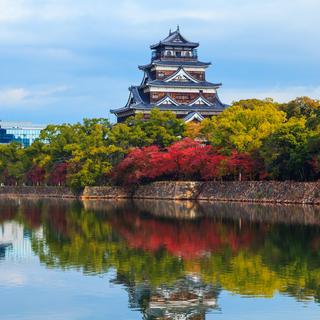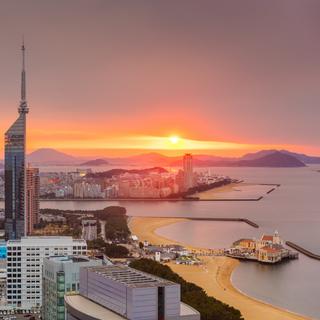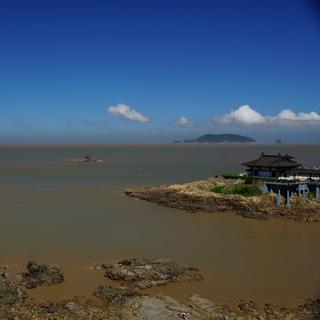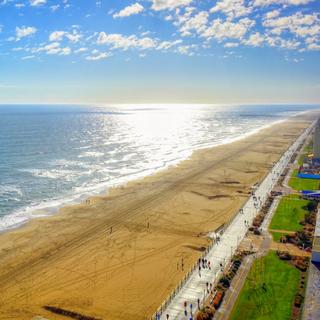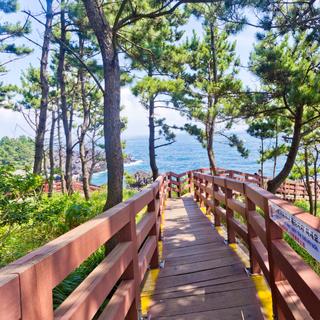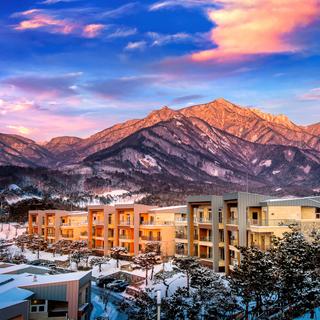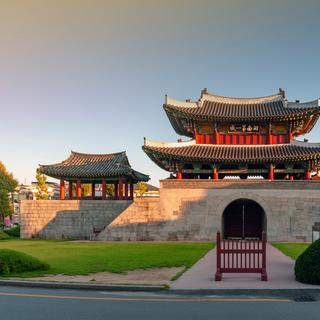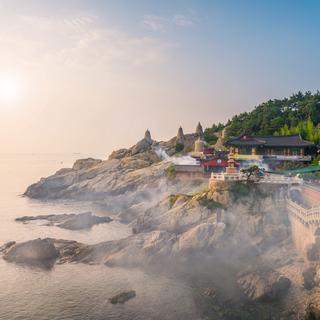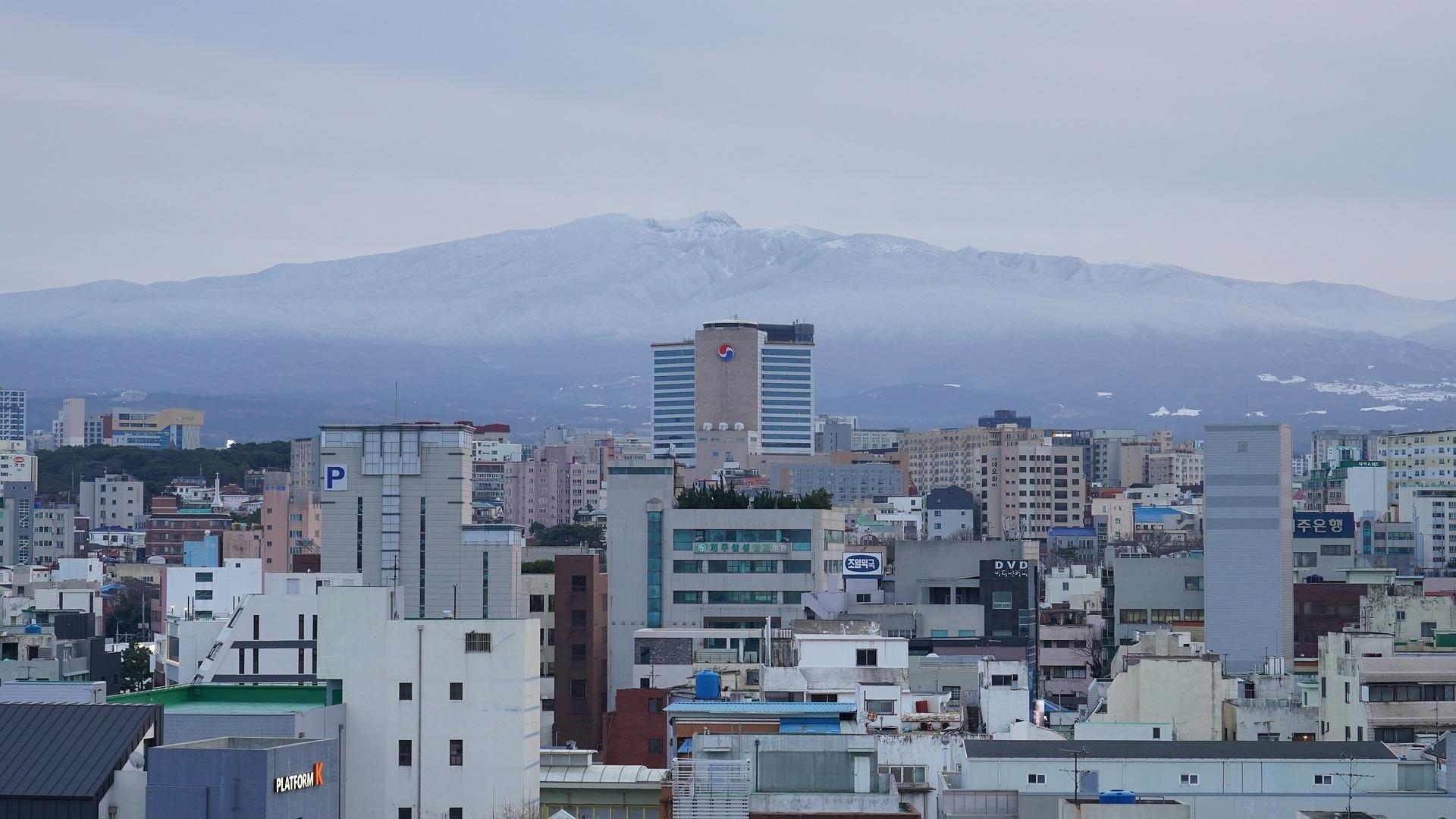
Jeju City weather and climate in 2025

Jeju City weather and climate in 2025
Day
30 °C
Night
24 °C
Sea
26 °C
Precipitation
260 mm
in month
Rainy days
13 days
in month
Daylight
13 hours
average
Sunshine
7 hours
average
Humidity
83 %
Weather charts for Jeju City
Destinations nearby and activities
Destinations nearby
Activities in Jeju City

Find more destinations like this
Destinations with similar weather to Jeju City
Other destinations in South Korea
Closest cities for Jeju City
Weather overview for Jeju City
Weather overview
Jeju City (South Korea) is a place with a mild climate. The day temperatures range from 8 °C (46 °F) in January to 30 °C (85 °F) in August. The least rainy month in Jeju City is October with its 6 days of rain, the rainiest month is August, when it rains 13 days. The highest night temperatures could be experienced in August with 24 °C (75 °F), the lowest in January with 3 °C (37 °F). Sea temperatures are in the following range: 13 °C (56 °F) in March to 27 °C (80 °F) in August.
January weather
The descent of the sea temperature can be observed, the value of this measure is 15 °C (59 °F) in Jeju City, while the day temperature reaches its minimum, the value of this measure is 8 °C (46 °F). The minimum of the night temperature can be noticed in this month. The rainfall amount starts to rise, the value of this measure is 65 mm (2.57 in). The minimum of the number of sun hours (without clouds) is observable in this month.
February weather
The day temperature starts to rise, with its value being 9 °C (49 °F) in Jeju City, while the sea temperature descents similarly to the previous month. The rise of the rainfall amount can be observed, with its value being 73 mm (2.89 in), while the beginning of the rise of the number of rainy days could be noticed, with its value of 8 days. The beginning of the rise of the night temperature could be noticed, its value is 3 °C (38 °F). The number of sun hours (without clouds) rise's start could be observed, with its value of 5 hours.
March weather
The minimum of the sea temperature is observable, the value of this measure is 13 °C (56 °F) in Jeju City, while the rise of the day temperature can be observed, with its value being 13 °C (55 °F). The rainfall amount continues to rise, with its value of 109 mm (4.30 in). The night temperature continues to rise, with its value of 6 °C (43 °F). The number of sun hours (without clouds) rises similarly to the previous month, its value is 6 hours. The humidity is on its minimum, with its value of 69 %.
April weather
The rise of the day temperature can be observed in Jeju City, while the sea temperature rise's start could be observed in this month. The rise of the rainfall amount can be observed, its value is 134 mm (5.26 in). The night temperature continues to rise, with its value being 10 °C (50 °F). The number of sun hours (without clouds) rises similarly to the previous month, the value of this measure is 7 hours.
May weather
The day temperature continues to rise in Jeju City, and the sea temperature continues to rise as well, with its value being 16 °C (61 °F). The night temperature rises similarly to the previous month, with its value of 14 °C (58 °F). The rainfall amount continues to rise, with its value of 166 mm (6.54 in). The number of sun hours (without clouds) rises similarly to the previous month, its value is 7 hours.
June weather
The tourist season is at its beginning in Jeju City. The sea temperature rises similarly to the previous month, with its value of 20 °C (67 °F), and the day temperature continues to rise as well, the value of this measure is 25 °C (76 °F). The beginning of the rise of the number of rainy days could be noticed, with its value being 11 days, while the rainfall amount continues to rise, the value of this measure is 233 mm (9.17 in). The night temperature continues to rise, its value is 19 °C (66 °F).
July weather
The day temperature rises similarly to the previous month, its value is 29 °C (83 °F) in Jeju City, and the sea temperature continues to rise too, its value is 24 °C (75 °F). The tourist season continues. The number of rainy days continues to rise, its value is 12 days, while the maximum of the rainfall amount is observable, with its value being 283 mm (11.16 in). The night temperature rises similarly to the previous month.
August weather
The ongoing tourist season is noticeable in August in Jeju City. The day temperature is on its maximum, with its value being 30 °C (85 °F), and the maximum of the sea temperature can be noticed as well, the value of this measure is 27 °C (80 °F). The number of rainy days reaches its maximum in August. The number of sun hours (without clouds) is on its maximum, with its value of 7 hours. The maximum of the night temperature can be noticed, the value of this measure is 24 °C (75 °F).
September weather
The tourist season continues this month in Jeju City. The day temperature starts to descent, its value is 26 °C (79 °F), and the sea temperature descent's start could be observed too in this month. The number of rainy days starts to descent, while the rainfall amount descents similarly to the previous month. The beginning of the descent of the night temperature could be noticed, with its value being 20 °C (68 °F).
October weather
The tourist season is close to its peak in Jeju City. The sea temperature continues to descent, with its value being 22 °C (71 °F), and the day temperature continues to descent as well, the value of this measure is 22 °C (71 °F). The rainfall amount continues to descent, with its value being 74 mm (2.92 in), while the number of rainy days reaches its minimum in this month. The night temperature descents similarly to the previous month, its value is 15 °C (58 °F).
November weather
The descent of the sea temperature can be observed, its value is 19 °C (65 °F) in Jeju City, and the descent of the day temperature can be observed as well, with its value of 16 °C (60 °F). The number of rainy days starts to rise, the value of this measure is 8 days. The beginning of the descent of the number of sun hours (without clouds) could be noticed in November. The descent of the night temperature can be observed, the value of this measure is 9 °C (48 °F).
December weather
The day temperature continues to descent, its value is 11 °C (51 °F) in Jeju City, and the sea temperature descents similarly to the previous month too, its value is 16 °C (61 °F). The rainfall amount reaches its minimum, with its value of 51 mm (2.00 in). The night temperature continues to descent, with its value being 5 °C (40 °F). The wind speed is on its maximum in December. The day length reaches its minimum in this month.
FAQs
How many hours of sun to expect in Jeju City in April?
There is an average length of sunshine of 7 hours per day in April in Jeju City.
What is the night temperature in May in Jeju City?
The average night temperature in Jeju City in May is 14 °C (58 °F). Nights can be cooler, morning running can be refreshing but choose appropriate clothing, evening outdoor sitting can be pleasant but you can also be cold.
Are there good conditions to visit in June in Jeju City?
June is a good month to visit Jeju City. The temperature during the day will be nice 25 °C (76 °F). At night, temperatures hover around a pleasant 19 °C (66 °F). A sea temperature of 20 °C (67 °F) can seem colder to some, but others will call it refreshing.
What is the sea temperature in July in Jeju City?
The temperature of the sea in July in Jeju City is 24 °C (75 °F). This warm sea is nice for swimming, maybe cold for some, but most people can spend a long time in it.
Is there a wet season in August in Jeju City?
No, there is no wet season in Jeju City in August - you can expect 13 days of rain during the month.
What temperature can I expect during the day in Jeju City in September?
The average daily temperature in September in Jeju City is 26 °C (79 °F). The ideal temperature for enjoying sunbathing by the water and a good temperature for other activities. For some people, it will be too hot in the direct sunlight and the stay may not be so pleasant. Don't forget to pack flip-flops, sunscreen, and a hand fan if necessary - it may come in handy.
How many days of precipitation on average can I expect in Jeju City in October?
There are 6 days, which are rainy in October in Jeju City, that is, days with precipitation more than 2 mm (0.08 in). Converted to days of the week, this means that it will occur on an average of 1.4 days of the week, or in general - 20 % days.
